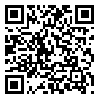

BibTeX | RIS | EndNote | Medlars | ProCite | Reference Manager | RefWorks
Send citation to:
URL: http://imtj.gmu.ac.ir/article-1-2382-en.html

 , A.R. Charkazi2
, A.R. Charkazi2 
 , M.R. Honarvar1
, M.R. Honarvar1 
 , M.J. Kabir1
, M.J. Kabir1 
 , R. Berdi Ozouni- Davaji1
, R. Berdi Ozouni- Davaji1 
 , M. Aryaie *
, M. Aryaie * 
 3, M. Eri1
3, M. Eri1 

2- Public Health School, Golestan University of Medical Sciences, Gorgan, Iran
3- Health Management and Social Development Research Center, , aryaiem2009@yahoo.com
Aims: As a growing problem, obesity is one of the most important worldwide health problems. One of the major factors leading to obesity is the sedentary lifestyle. The aim of this study was to investigate the effects of motivational interviewing on the physical activity intention in the obese or overweight women, using the protection motivation theory (PMT).
Materials & Methods: In the clinical trial study, 60 obese or overweight women referred to the health centers of Gorgan were studied in 2015. The subjects, selected via non-probable and available sampling method, were randomly divided into two groups including control and motivational interviewing groups. Data was collected using a researcher-made questionnaire before the intervention and 2 and 6 months after in both groups. Data was analyzed by SPSS 18 software using independent T, Chi-square, repeated measures ANOVA, LSD, and one-variable and multivariable linear regression tests.
Findings: The scores of all the constructs of PMT in motivational interviewing group significantly increased 2 and 6 months after he intervention (p<0.001) than control group. However, the reductions in the BMI and weight anthropometric indices were not significant 2 and 6 months after the intervention (p>0.05). The most powerful constructs predicting the intention towards the physical activities 2 months after the intervention were perceived-reply efficiency, self-efficiency, and perceived intensity, successively. In addition, such factors 6 months after the intervention were attitude and perceived intensity, successively.
Conclusion: The motivational interviewing increases the scores of all the constructs of PMT, which leads to an increase in the physical activity intention in the obese or overweight women.
Received: 2015/12/13 | Accepted: 2016/08/1 | Published: 2016/10/29
| Rights and permissions | |
 |
This work is licensed under a Creative Commons Attribution-NonCommercial 4.0 International License. |

